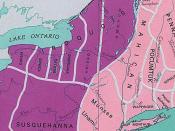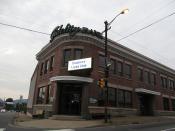Forced Founders In Forced Founders by Woody Holton, Holton argues that Indian and slave rebellions were the primary force in the Independence movement in Virginia. It is commonly believed that the land-owning gentry class prompted the revolution in Virginia. Nevertheless, Holton shows how slaves, American Indians, and debtors may have actually played a much greater part in the Independence movement than popular history suggests. Holton?s contention is that class conflict acted as a powerful catalyst in the revolutionary movement as the wealthy land owners such as George Washington and Thomas Jefferson were forced into joining the revolution on account of controlling the Indian rebellions on the Western front and the slave rebels at home.
The Native American tribes in the Western frontier played a major role in the Virginia revolutionary movement. The elite Virginian gentry?s desire for Western Native American lands rapidly grew in the mid-eighteenth century. The wealthy Virginians made many attempts to attain these lands and the Native Americans resisted hard to defend what their land.
Furthermore, the British government was more accommodating to the Natives than the Virginians wished. Parliament was careful not to incense native tribes for fear of a costly war or rebellion. A British official exclaimed that Indian rebellions (specifically Pontiac?s Rebellion) were ?expensive and destructive to his Majesty?s Subjects.? For example, in October 1768, the British imposed the Treaty of Hard Labor, which resulted in the Cherokee Indians retaining land that Virginian Thomas Jefferson had claimed. Two more major British treaties enraged the Virginia land speculators. The treaty of Easton in 1758 decreed all lands west of the Appalachian Mountains to the Indians. This treaty caused problems for many speculators and farming companies. However, the major calamity to the Virginian gentry was the Proclamation of 1763. Although the proclamation did little to...

